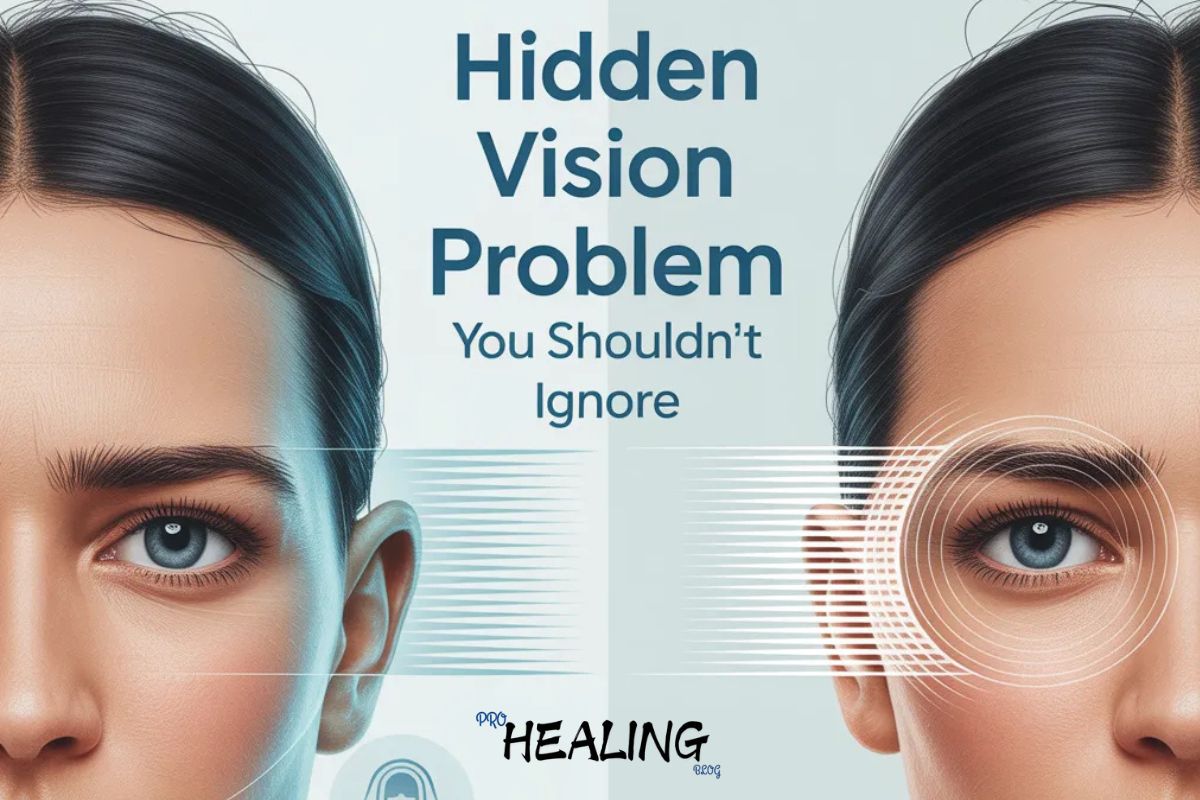For me never imagined that one drug would have such a profound impact on my life. The purpose of gabapentin, a medication frequently prescribed for epilepsy and nerve pain, was to assist me in managing chronic pain following a back injury. Rather, it plunged me into a haze of bewilderment, despair, and dependence. At first, I blindly accepted the doctor’s recommendations. Gabapentin was, after all, extensively promoted as being both safe and well-tolerated. But after a few weeks, I knew something was seriously amiss. That’s when I began to realize the truth: gabapentin ruined my life.
The adverse effects were mild at first. I was unable to concentrate, felt emotionally distant, and was always exhausted. I soon started having significant anxiety, mood swings, and brain fog episodes.Despite being prescribed to alleviate my pain and improve my sleep, gabapentin paradoxically resulted in intrusive thoughts and insomnia. In order to avoid social situations that had suddenly become too much for me, I also cut off contact with friends and relatives.
My body told a different story, even though I believed my doctor. I looked into internet communities throughout time and found that I wasn’t the only one. Similar experiences were reported by numerous others: the drug ruined relationships, made them irrationally afraid, and dulled their intellect. Consequently, I ceased to think that my illness—or worse, my character—was the issue. Like many others, I came to realize that gabapentin ruined my life.
Instead, I discovered that the unifying denominator in this disaster was gabapentin. I made the decision to take off the medication under a doctor’s supervision at that point. The withdrawal symptoms were unbearable even at that time. I was nevertheless adamant about taking back my identity and life. Sadly, the emotional and mental scars still exist.
My story is not unique, but it is not shared very often. People with epilepsy, anxiety, or nerve pain should be completely transparent. Gabapentin works for some people, but it was disastrous for others, including me.. This post explains how gabapentin destroyed my life in the hopes that it can help you stay out of the same situation.
Losing Myself: The Subtle Descent into Emotional Numbness
The Slow Decline into Disconnection
My life wasn’t immediately ruined by gabapentin. It was slow, hiding damage behind a mask of numbness. At first, I felt more at ease—less discomfort, more rest. However, this supposed serenity soon turned into indifference. I lost interest in the things I once loved. I was unable to identify myself in the mirror as the days stretched into weeks. My desire, curiosity, and sense of humor started to fade.
When No One Notices You’re Slipping Away
The fact that the modifications went undiscovered is much more unsettling. Friends thought I was “just tired” because I wasn’t visibly falling apart. Even I believed that I was simply adjusting to a new phase of my life. However, I had a gut feeling that something wasn’t quite right. I looked functional, but I was emotionally devoid.
Disconnected from Emotion and Relationships
Gabapentin also made it harder for me to connect. Sadness was only an idea to me, and I was incapable of experiencing joy. My connections took a hit. My partner became irritated. Friends left. I couldn’t blame them since being with someone who lacks emotional depth is tiresome. I often sat quietly because I could not contribute to debates in a meaningful way.
Losing Memory and Confidence
In addition, I started losing track of critical professional responsibilities, appointments, and even names. My self-confidence diminished. For me had self-doubt all the time. My journey has led me to eventually came to feel that I was irreparably damaged.
Finding Validation in Shared Experiences
I came into internet forums where people shared their stories during that time. After taking gabapentin, I read post after post from people who felt as though they had lost their identity. The medication was first administered for nerve pain, anxiety, and epilepsy in several cases. They all spoke of the same emotional emptiness.
The Invisible Damage No One Talks About
The most damaging aspect of my experience was this emotional flatlining, which doctors hardly ever discuss. I was all right physically. But emotionally and psychologically, I was gone. If not for these memories we shared, I might have spent my entire life in that emotional blank.
The Withdrawal That Broke Me: How Gabapentin Ruined My Life and Escaping Its Grip
Making the Decision to Quit
I bravely decided to stop taking gabapentin after feeling like a ghost for months. After I told my doctor, he suggested a gradual taper. Despite my meticulous attention to directions, nothing could have prepared me for the ensuing storm.
Anxiety, Insomnia, and Mental Chaos
The anxiousness immediately returned, but it was ten times worse. My heart would beat erratically. For me frequently stayed up for seventy-two hours at a time due to my bad sleeplessness. I was struggling to function, and every minor irritation made me nervous. I felt as though my neurological system was malfunctioning. And the truth is not far from that.
Severe Physical Symptoms During Withdrawal
The physical effects of withdrawal were just as severe. My hands shook with tremor. My skin crawled. I experienced tinnitus, a chronic ringing in my ears that made it difficult for me to focus. Something went wrong with my stomach, and I began feeling sick every day. Gabapentin proved me wrong for a medication that is touted as non-addictive.
Emotional Shock and Betrayal
Stopping the medicine triggered intense emotional whiplash. I cried for the first time in months—not just from sadness, but from betrayal. I felt heartbroken because I had placed my trust in the medicine. For me regret not questioning it sooner. And I still feel furious that medical professionals failed to warn me about any of this. In the end, it’s undeniable that gabapentin ruined my life.
Contradictions in Medical Use
It’s interesting to note that some individuals who use gabapentin for epilepsy report notable advantages. I’m happy that they do. However, that does not support the general confidence that is advised. No matter how helpful a drug is for one person, it can be disastrous for another. In my case, gabapentin ruined my life.
The Need for Better Withdrawal Support
Furthermore, I now think gabapentin users should have a more thorough withdrawal procedure. Because they mistake withdrawal for a return of their initial condition, far too many people are permitted to suffer in quiet. I might have resumed using the substance out of pure desperation if I hadn’t connected with support groups.
See Also: Femcels: Understanding the Health Perspective
The First Step Toward Rediscovery
Life didn’t immediately become better after breaking free from gabapentin’s hold. However, that was the beginning of my self-discovery. I felt human again, but broken.
The Emotional and Social Fallout: How Gabapentin Ruined My Life and Picking Up the Pieces
Rebuilding My Identity After Gabapentin
After taking gabapentin, regaining my identity was more difficult than stopping the medication. The actual work actually started after withdrawal.
Facing the Damage in Relationships: How Gabapentin Ruined My Life
Relationship tension, unmet commitments, and internalized guilt were all things I had to cope with. Why I had “disappeared” for so long was a mystery to my loved ones. To be honest, at the time, I couldn’t really explain it either. The truth is, gabapentin ruined my life, and I was only beginning to understand how deeply.
Taking Accountability and Reconnecting
I had to apologize to friends I had ignored and to coworkers whose emails I never answered. Others had, of course, moved on, while others were sympathetic. Still, I chose to face the repercussions instead of fleeing again.
The Role of Therapy in My Recovery
My rehabilitation was greatly aided by therapy. I was able to get through the emotional harm that gabapentin and my initial quiet had created through counseling. I had kept it all to myself, thinking no one would take me seriously. But when I spoke, everyone paid attention. It became clear to me—and to others—that gabapentin ruined my life.
How Writing Helped Me Heal
Similarly, journaling aided in my emotional processing. I wrote every day, sometimes in the form of nostalgic thoughts and other times as angry tirades. My remarks gradually started to convey clarity and eventually hope. I realized I was getting better at that point.
Reconnecting With Life Through Small Steps
My physical vigor returned. For me resumed my walk and then my run and joined a book club in my community. I gradually reconnected with life. I stopped pretending everything was fine when it wasn’t, smiled more often, and let myself cry when I needed to. That’s when I truly began to heal from the reality that gabapentin ruined my life.
Turning Pain Into Purpose
It has become a personal goal to raise awareness regarding drugs. The effects of medicines vary from person to person. What works for one individual might not work for another. The purpose of my gabapentin experience is to educate, not to frighten. In the sake of healing, no one should have to lose themselves.
You Can Recover, Too
I want you to know that there is life after gabapentin if your situation is similar to mine. Recovery is possible, but it requires time, work, and support.
Conclusion: Learning, Healing, and Advocating for Awareness
Finally, I can honestly say with conviction: gabapentin ruined my life—and I stand by every word.. From numbness to severe withdrawal, the drug affected every aspect of my life. It robbed years I will never get back, distorted my thinking, and shattered my relationships. But my trip wasn’t a hopeless one. It changed into something strong instead—awareness.
Gabapentin may be helpful for many people, particularly those with epilepsy, but it’s vital to realize that every body reacts differently. I hope fewer people make the mistake of naively accepting any medication without taking into account its potential long-term effects. This anguish has a purpose if my tale inspires even one person to think carefully before beginning drugs. For me, gabapentin ruined my life—but sharing this truth may prevent it from ruining someone else’s.
I no longer take medicine and am closer to myself than ever. I now know how to speak up for my health, challenge medical advice when needed, and pay close attention to my body. Gabapentin didn’t heal in a straight line, but it was worth it. I learned to enjoy light once again from the gloom. That journey began the day I admitted that gabapentin ruined my life and chose to reclaim it.
I also truly believe in openness now. Open communication between patients, doctors, and pharmacists is essential. Drugs are a tool, not a cure-all. They desire deference, caution, and accountability.
So if gabapentin or related medications have confused you, trust that clarity will come. You haven’t lost your strength. You’re not by yourself. Your narrative is important. Above all, you have the ability to take back your life—even if, like me, you feel that gabapentin ruined my life.
This piece should serve as a reminder that the first step to rehabilitation is awareness. The trip may be difficult, but the destination is worth every step.
FAQs
Can gabapentin cause brain damage?
Gabapentin doesn’t officially cause brain damage, yet its long-term use seriously affected my cognitive clarity. As a result, I experienced intense brain fog and emotional numbness. Over time, these effects left me mentally exhausted.
What organ is gabapentin hard on?
Gabapentin primarily stresses the kidneys because it’s excreted unchanged. Therefore, those with renal issues must exercise caution. Additionally, its effects on the brain can be mentally taxing, though not directly damaging organs.
Why is gabapentin bad?
Gabapentin can become problematic due to its unpredictable mental and physical side effects. For example, I faced emotional detachment, memory issues, and even social isolation. Consequently, it disrupted nearly every part of my life.
Is gabapentin bad for memory?
Yes. After starting the medication, I noticed frequent forgetfulness and poor concentration. Eventually, these lapses affected my relationships and work. Therefore, I consider its impact on memory deeply harmful.
Can gabapentin cause leg weakness?
Yes, it can. During withdrawal, I experienced tremors, fatigue, and muscle weakness—especially in the legs. In addition, balance and coordination were noticeably affected.
Is gabapentin good for mental health?
In my case, no. Instead of calming my anxiety, it worsened my mental state. Moreover, it created emotional numbness, making daily life feel empty and disconnected.






